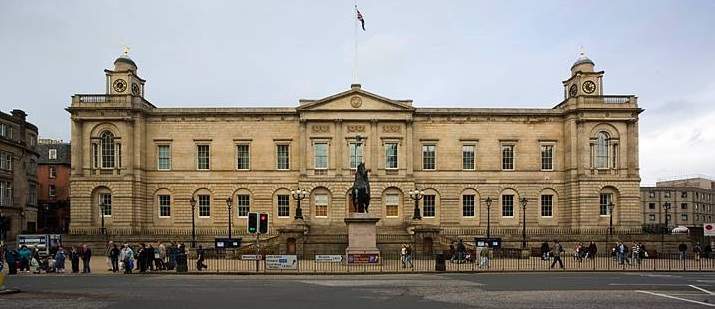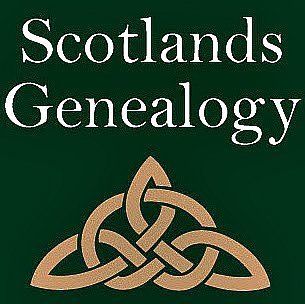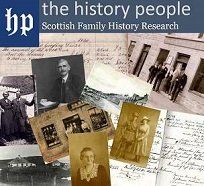Visitor Info LGBT Scotland
two column template
Discover your Scottish Ancestors
Spend the day at ScotlandsPeoplebefore setting off to visit your ancestors' homelands

Your ancestral trip to Scotland: searching records, visiting places, meeting locals
Find your past
2018
Statutory Records
Search results include links to view image or order certificate. The digital images, which are of the original register pages, are restricted as follows for internet research:
100 years for births
75 years for marriages
50 years for deaths
You can also purchase extracts, fully certified copies of births, marriages or deaths
Statutory Records
Search results include links to view image or order certificate. The digital images, which are of the original register pages, are restricted as follows for internet research:
100 years for births
75 years for marriages
50 years for deaths
You can also purchase extracts, fully certified copies of births, marriages or deaths
Scotlands Genealogy
You can save hours of fruitless searchs by employing a professional genealogist
You can save hours of fruitless searchs by employing a professional genealogist
Your guide ancestral research in Scotland
If your ancestors came from Scotland you could be in luck as there is a vast digitised record of birth, marriage, death (BMDs) and census information at your disposal. Unlike records in England, you have direct access to the statutory and scanned parish record books, rather than the indexes.
Records usually contain parents' information, making it much easier to link BMDs together.
Whilst many recent records are closed on the internet to protect the living, there is no such restriction if you visit the the ScotlandsPeople Centre, Edinburgh in person.
Here, gathered together, is a vast amount of family history and genealogical information from its partner organisations dating back almost 500 years. The records are being added to all the time including non conformist church records and are available to view and print from computer screens.
At busy times of the year you are well advised to book ahead.
Seeing your family history in the context of the land is unbelievably satisfying - even if it had been one of hardship - you will swell with pride and probably learn more about yourself.
About your Ancestral Tour
Whilst I can explain much of the social history of your ancestors there are times when searching the basic records just isn't enough and you may wish to consider employing a professional genealogist. These people are highly skilled and can save many hours of fruitless searches.
Your Journey of Discovery
We spend the day at the ScotlandsPeople Centre - building your family tree and then set off to find the locations of significant events in your ancestors' lives. Who knows, you may discover distant cousins still living in the area.
Useful Resources
Tip: start here - Packed with useful information on where to start, records available, tartans and Scotland's history
Visitscotland/ancestry
General Records Office
The National Archives of Scotland
ScotlandsPeople Centre
Records usually contain parents' information, making it much easier to link BMDs together.
Whilst many recent records are closed on the internet to protect the living, there is no such restriction if you visit the the ScotlandsPeople Centre, Edinburgh in person.
Here, gathered together, is a vast amount of family history and genealogical information from its partner organisations dating back almost 500 years. The records are being added to all the time including non conformist church records and are available to view and print from computer screens.
At busy times of the year you are well advised to book ahead.
Seeing your family history in the context of the land is unbelievably satisfying - even if it had been one of hardship - you will swell with pride and probably learn more about yourself.
About your Ancestral Tour
Whilst I can explain much of the social history of your ancestors there are times when searching the basic records just isn't enough and you may wish to consider employing a professional genealogist. These people are highly skilled and can save many hours of fruitless searches.
Your Journey of Discovery
We spend the day at the ScotlandsPeople Centre - building your family tree and then set off to find the locations of significant events in your ancestors' lives. Who knows, you may discover distant cousins still living in the area.
Useful Resources
Tip: start here - Packed with useful information on where to start, records available, tartans and Scotland's history
Visitscotland/ancestry
General Records Office
The National Archives of Scotland
ScotlandsPeople Centre
Planning an Ancestral Tour
Find as much information about your ancestors as possible. Even approximate dates, places and ages.
As part of your tour, spend a day in ScotlandsPeople researching your ancestors then head off and discover the places they lived.
If you have started your research and you hold the information in GEDCOM or PAF format (used by Geneology programs) then export it to me in advance. This will allow me to start planning your vacation.
As part of your tour, spend a day in ScotlandsPeople researching your ancestors then head off and discover the places they lived.
If you have started your research and you hold the information in GEDCOM or PAF format (used by Geneology programs) then export it to me in advance. This will allow me to start planning your vacation.
the history people
is based in the North-East of Scotland and undertakes Scottish family history research for clients across the world. LGBT friendly
Understanding Genealogy
The Ultimate Beginners Guide to Genealogy
Gives an overview of starting your own research as a hobby, regardless of the country.
The Ultimate Beginners Guide to Genealogy
Gives an overview of starting your own research as a hobby, regardless of the country.
Soldiers' Wills on the ScotlandsPeople website
Soldiers' wills were usually found in pay books retrieved on the battlefield, recorded on forms in Army record offices in Britain, or in the absence of a will, in letters home in which soldiers might mention their last wishes.The vast majority (26,000) of the Soldiers' Wills are from the First World War, and there are also nearly 5,000 from World War Two.
After the War Office had settled the estate of a soldier who died on active service, including entitlements to pay and pension, they sent the will to the civil authorities. For soldiers with a Scottish domicile this was the Commissary Office in Edinburgh. After 1940, the wills were transmitted to Register House in Edinburgh, where they are now preserved by the National Records of Scotland.
Soldiers' wills were usually found in pay books retrieved on the battlefield, recorded on forms in Army record offices in Britain, or in the absence of a will, in letters home in which soldiers might mention their last wishes.The vast majority (26,000) of the Soldiers' Wills are from the First World War, and there are also nearly 5,000 from World War Two.
After the War Office had settled the estate of a soldier who died on active service, including entitlements to pay and pension, they sent the will to the civil authorities. For soldiers with a Scottish domicile this was the Commissary Office in Edinburgh. After 1940, the wills were transmitted to Register House in Edinburgh, where they are now preserved by the National Records of Scotland.
<< home page
Copyright © Black Kilt Tours 2011-2021 All rights reserved. All images are the property of Black Kilt Tours or used under licence


